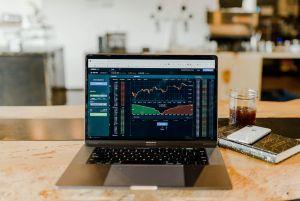The text below is an advertorial article that was not written by Cryptonews.com journalists.
Since bitcoin’s creation in 2009, cryptocurrencies have fascinated, intrigued and tempted investors ever since.
With volatile price changes, and the ability to trade centralised currencies with the digital coins, investors who are bold, or lucky enough, can strike big returns from investing in crypto.
Over 6,000 cryptocurrencies – or ‘altcoins’ – have been launched since bitcoin’s introduction, so the market can be a tricky place to wade through, something set to become even more muddied if social media giant Facebook goes ahead with launching its own cryptocurrency Libra.
While Bitcoin is traded readily across the world, Asia has regularly led the way in trading bitcoin and other cryptocurrencies, with Japan and South Korea emerging as new hubs of crypto activity. If you’re looking to capitalise on the rewards that investing in crypto, read on.
Pick the right regions
Both Japan and China have floated idea of launching their own state-owned digital currency, but plans are yet to get off the ground in either country. It demonstrates a clear interest in crypto in the region, but approaches to crypto differ from country to country.
- China – ‘Mining’ bitcoin is huge in China, with estimates that 70% of the computing power behind the currency comes from Chinese developers. The Chinese government has banned cryptocurrency on occasions, however, so using Yuan to invest can be a tricky road to navigate.
- Japan – Crypto exchanges are licensed and audited, so investing with Yen comes with added layers of security, while the country’s growing acceptance of crypto as a means to pay for goods is evidence of a shift towards digital currency.
- South Korea – The National Assembly in Seoul recently passed legislation to legalise crypto exchanges in the country, providing a proper framework around which crypto platforms can be built. This legitimisation of crypto makes the Won a strong instrument to trade against bitcoin and other cryptocurrencies.
- Singapore – The Monetary Authority of Singapore has also begun to licence crypto exchanges, as well as setting up taxation structures to prevent money laundering involving cryptocurrencies.
Don’t rush into decisions
The 2018 ‘bitcoin crash’ saw the values of cryptocurrencies the world over plummet amid widespread selling off of currencies. Bitcoin’s value slumped by more than half during this period, with altcoins following suit after a brief period of high-value trading.
FOMO (the fear of missing out) has become an industry term for investors that see soaring prices and jump in – often just when that surge is coming to an end.

Staying calm in the choppy waters of crypto is vital – if you have a plan, it’s best to stick to it, whether you’re experiencing losses or others are seeing their coins spike in value. The days, weeks and months that play out on traditional markets often become seconds and minutes with crypto, so ride out any storms and stick to your guns.
… but don’t wait too long either!
But that volatility also means you need to be quick to react. If signals are coming in that chime with your investment plan, you need to be able to react fast.
Platforms like Tickmill allow investors to trade bitcoin alongside more traditional stocks and shares, putting all the information you need in one place to trade commodities of widely varying natures.

Diversify, but remember Bitcoin is key
Putting all your eggs in the Bitcoin basket is never a good idea, indeed diversifying is vital if you are seeking stable wins across any investment.
However, Bitcoin’s prevalence in the crypto markets means that you should monitor it closely in your attempts to find good margins – whether with the coin itself, or altcoins that are lower in value, but are often open to vastly higher potential surges in value – or ‘pumps’.
In April 2020, the cryptocurrency market soared in value by $35billion across just 24 hours, a rise led by Bitcoin’s recovery in value and stimulated by recovery packages being unveiled by central governments amid the Coronavirus pandemic.
